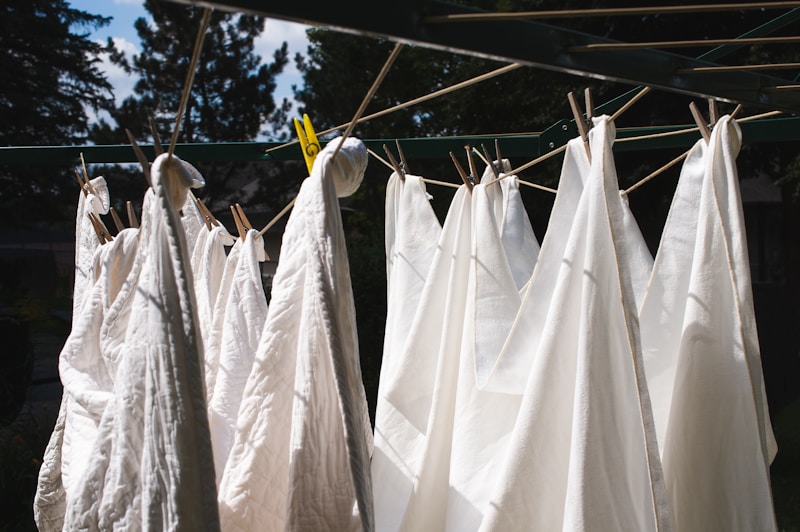Sustainable Trends in the Wedding Dress Market
Sustainable Trends in the Wedding Dress Market
Introduction to Sustainable Wedding Dress Trends
The wedding dress market is evolving, reflecting broader societal shifts towards sustainability. As more couples prioritize environmental responsibility, sustainable trends in the wedding dress market are becoming increasingly prominent. From eco-friendly materials to ethical production methods, this guide will delve into the key aspects shaping this burgeoning trend.
The Importance of Sustainability in Fashion
Sustainability has become a pivotal focus in various industries, and fashion is no exception. The wedding dress sector, known for its elaborate designs and significant waste generation, is now experiencing a transformative shift. In this section, we will explore why sustainability is essential in the wedding dress market.
Environmental Impact of Traditional Wedding Dresses
Traditionally, wedding dresses have contributed to substantial environmental issues, including:
- Overconsumption of resources
- Use of harmful chemicals in production
- Massive textile waste post-event
Understanding the environmental impact of these practices has led to a significant demand for change and awareness about sustainable alternatives.
Key Sustainable Trends in the Wedding Dress Market
As sustainability gains traction, several exciting trends have emerged within the wedding dress market. Let’s explore them in detail:
| Trend | Description |
| Eco-Friendly Materials | Many designers are opting for organic, recycled, and biodegradable fabrics such as organic cotton, hemp, and Tencel. |
| Made-to-Order Designs | Custom gowns that are made to order reduce excess inventory and promote a personalized approach. |
| Rental Options | Rental services allow brides to wear high-quality dresses without contributing to fast fashion waste. |
| Second-Hand Shopping | Buying pre-owned dresses is gaining popularity as it extends the lifecycle of garments. |
| Supporting Local Artisans | Many couples are choosing local designers to minimize environmental shipping impacts and support their community. |
Eco-Friendly Materials: A Deeper Dive
The choice of materials is crucial in the pursuit of sustainability. Some popular eco-friendly fabrics include:
- Organic Cotton: Grown without toxic pesticides, organic cotton is soft and biodegradable.
- Tencel: Also known as lyocell, Tencel is made from sustainably sourced wood pulp and is fully biodegradable.
- Hemp: This fast-growing plant requires minimal water and is highly durable, making it a great sustainable option.

The Role of Technology in Sustainable Practices
Technology plays a vital role in advancing sustainable trends within the wedding dress market. Innovations such as 3D printing and sustainable manufacturing processes reduce waste while enhancing customization options. This not only helps in the reduction of excess fabric but also allows for creativity without compromising on the environment.
3D Printing: Revolutionizing Wedding Dress Design
3D printing technology enables designers to create intricate patterns and shapes with minimal material usage. This shift toward additive manufacturing supports sustainability and enhances the uniqueness of each dress, catering to modern brides who seek individuality.
Embracing Rental and Second-Hand Options
Rental services and second-hand markets provide a sustainable alternative for couples looking for unique wedding dresses. By opting to rent a gown or purchase a pre-owned one, brides can enjoy high-quality fashion choices while minimizing waste.
| Benefits of Wedding Dress Rentals | Description |
| Cost-Effective | Renting a wedding dress can save a significant amount of money compared to purchasing a new one. |
| Less Environmental Impact | Rental options help reduce the carbon footprint associated with new dress production. |
| Variety and Convenience | Renters have access to a wide range of dresses without long-term commitments. |
Supporting Local Artisans and Ethical Brands
Couples increasingly want to support brands and artisans who share their values. Purchasing from local designers not only minimizes shipping but also helps sustain local economies. Many ethical brands are also transparent about their production processes, allowing consumers to make informed choices.
How to Identify Sustainable Wedding Dress Brands
When searching for a sustainable wedding dress, consider the following:
- Look for certifications (e.g., GOTS for organic textiles).
- Read reviews and testimonials about the brand’s commitment to sustainability.
- Inquire about the materials used and the production methods.
Conclusion: The Future of Sustainable Wedding Dresses
As we navigate through the changing landscape of the wedding dress market, sustainability stands as a beacon of hope for the fashion industry. Whether through eco-friendly materials, rental options, or supporting local designers, couples have numerous opportunities to make environmentally responsible choices that reflect their values.
To sum up, when choosing a wedding dress, consider the various sustainable trends available. Embrace the idea of renting, buying second-hand, or supporting artisans. By doing so, you contribute to a growing movement that prioritizes both style and sustainability. Remember, every purchase has a story—let yours contribute positively to the world.
Remember: Always do your research and connect with brands that align with your values to ensure your wedding dress decision positively impacts the environment.
